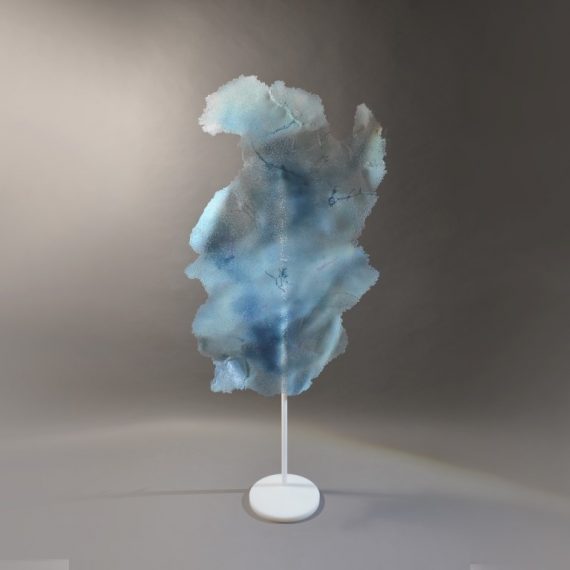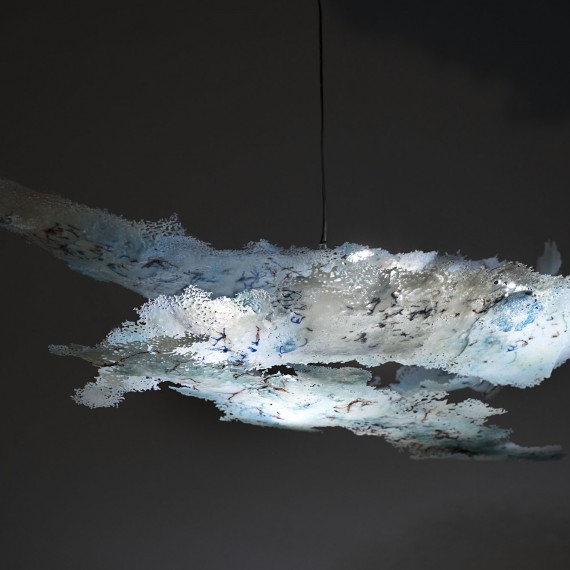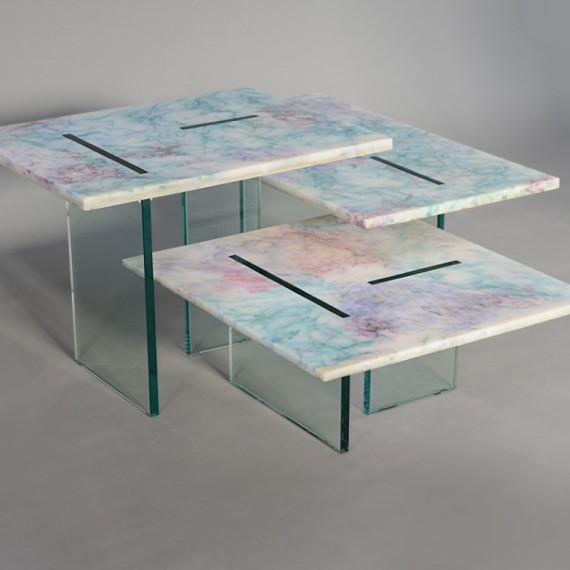THE PROJECT AIMS TO REPRESENT ONE OF THE MAIN PROBLEMS SUBMERGED IN OUR OCEANS: THE GHOST NETS.
Fishing nets are also made of nylon, a high performance plastic that is now also completely recyclable.
The tabletops of our prototypes are made of some coloured nets from the oceans melted together with ECONYL®, the translucent regenerated nylon produced through an innovative and sustainable chemical process that regenerate waste such as fishing and aquaculture nets and other nylon waste.
As well as being a solution on waste, the regenerated nylon is also better when it comes to climate change. It reduces the global warming impact of nylon by up to 80% compared with the material from oil.
The tabletops of these prototypes are multicolored since we melted together nets of various colors, dramatically tangled as in the seabed, with a surprising marbled effect.
The legs of the tables are made of glass slabs and aluminum fixings – two of the best examples of recyclable materials in the world – simply wedged and screwed in the nylon tabletops, so each part can be easily removed in order to make the prototypes 100% recyclable in the future.
Through the transparency and reflections of the glass at different heights, the coloured fishing nets of the tabletops seem to float, as an abstract reflection about the fragile condition of our oceans.




